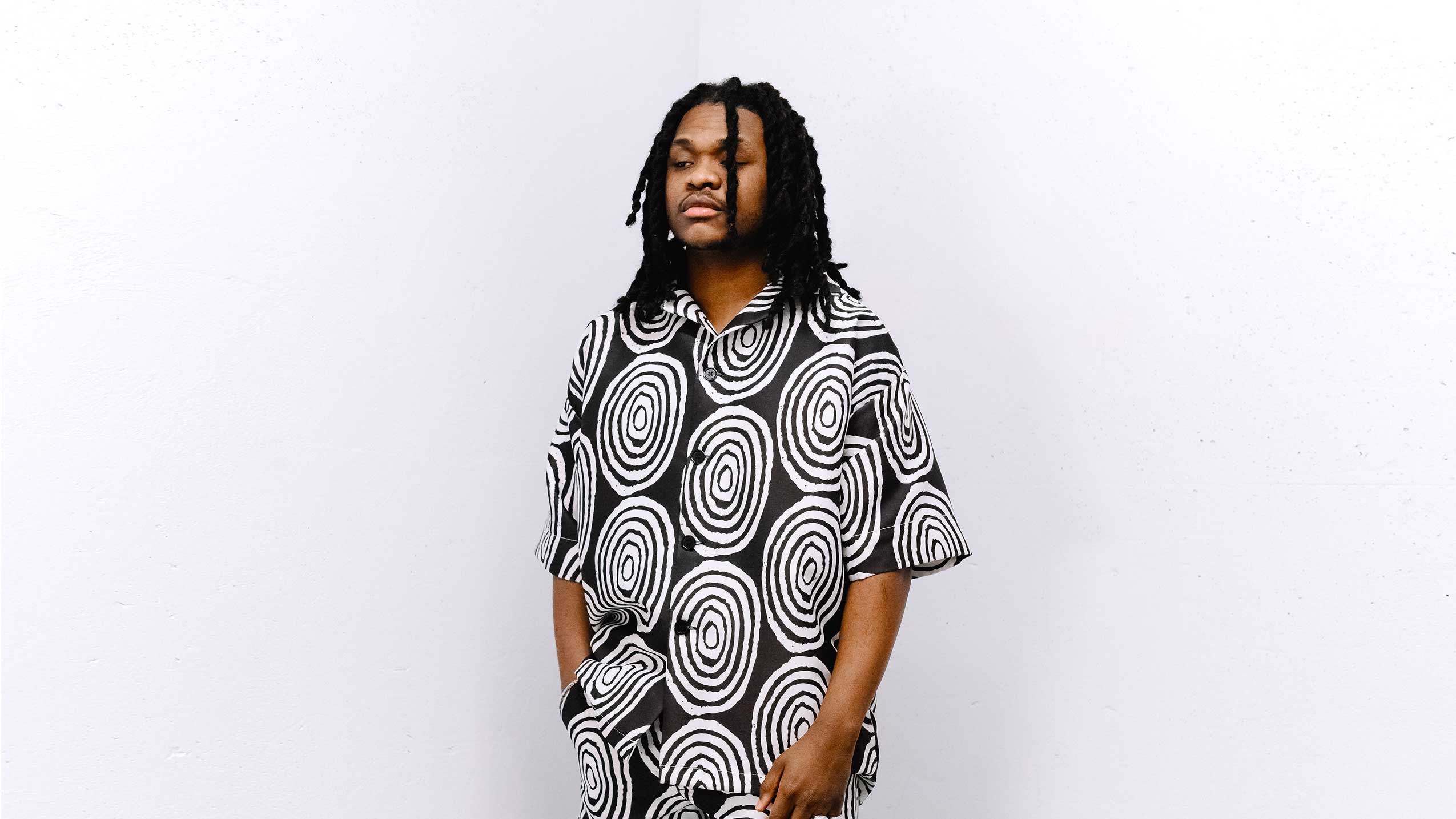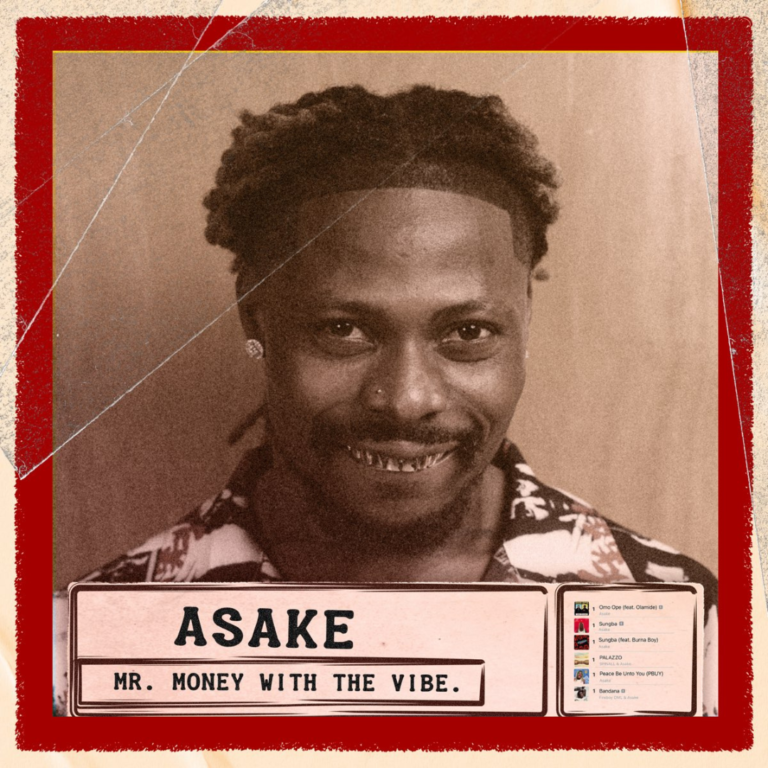Dwin, the Stoic‘s solo sophomore album “Master of Ballads”, arrives under his self-founded music label St. Claire Records. The album reflects his evolution.
It focuses on a love story or the lack thereof, as Dwin, with 15 ballads, carries the listeners on his journey through loneliness, mourning the distance between him and a lover now out of reach. Dwin, throughout the tracks, melodiously whispers the pleasures and pains, joys and angst in his life, welcoming you with open arms.

The album, a mixture of folk, alt-pop, highlife, and Afropop, is mostly produced by Rhaffy, his long-time collaborator. Producers Smasher, GRNDMSTR, and LMBSKN also make cameos on the album.
“Masters of Ballad” opens with Be Well, the prologue roaring with drums like thunder and trombone sound. With it, he sets the scene for his journey to seek a new burning desire for his old flame. In the first few lines, it’s as if he’s over the experiences they shared, but further down, he clings to past commitments he made, the shared history they have, and the lessons he learned from it all. They’ve gone from strangers to lovers, to his desire to be reunited with them, to being strangers. He optimistically closes the song, singing, “And now it’s bleak as hell / But it’ll all be well.”
A bleeding heart and tear-jerking poetry flow on Beside Me. Dwin pleads for his lover back. This song summarily says, “Give me my lover or I’ll die.”
In Running with Lindsey Abudei, he reminisces of the good days they shared, of both of them singing and chasing the wind.
Like Darey Art Alade, who heard “footsteps down the hall,” a premonition that his lover would someday leave him for good, Dwin too forgoes the fight to keep love and tells it to leave the room without any drama on Next Time. Dwin separates himself from time-wasters, lovers with avoidant issues who lack communication skills. He keeps soliloquising on Ifunanyam. It’s been three years since the song first came out, and perhaps it signals that Dwin hasn’t moved away from that lover. Unlike the popularised relationship dynamics, the take that infidelity by men is the norm, Dwin challenges the lie, offering a Nigerian man looking to be monogamous.

In I Go Nowhere, he strengthens his resolve to commit to a single person.
In Steady, he showers rather cliché praises on them; asa mpetem, his beautiful woman, a gem that no jewellery can match.
On Hard Education, Dwin taps Ruka, the other half of the Ignis Brothers singing group he also belongs to. The bandmates sing about letting go, either of the attachment issues that have brought them to this point or their inability to see their lover has left them.
The soft highlife of Dwin’s Time Is Money gives the 1989 Time Na Money classic by Mike Okri, except Dwin’s rendition is measured and spontaneous. Here, he won’t spare a second on a dispassionate lover. He resolves to move on if the person isn’t ready for a serious relationship. He’s not wrong. If you’re not giving aura-for-aura, why are we here? But anyway, it’ll take more than his sweet whispers in his lover’s ear to spell r-o-m-a-n-c-e.
To You quietly tides around guitar strums and the breezy delivery as he runs back to his lover. On this track, Dwin and rising musician Ogranya, remind all of us that goodbyes are as much the end of a chapter as they are the ultimate test of love. In need of assurance that his love is the real thing, in Hold Me Now, Dwin tells his lover to hold him just tighter. It’s the same sentiment on Gkw (God Knows Where), a fitting comeback for a 2022 single into the album.
But is this even a ballad about love? Can this even be love, this, at times, toxic co-dependent journey that Dwin has embarked on? Why should anyone spend all their time pinning away for their lover? What then is the point of being kept?
“I’ll be here when you’re feeling down / Your companion / Keep you safe and warm,” he sings in Shake. But this never happens all through the album. He’s never really there. In Please Say Something, Dwin begins a journey towards honesty, reconsidering the situations at hand. It seems the companionship he seeks and speaks of all over “Master of Ballads” is a weary one. Here, his uncertainty, frustration and fear are at their peak. He desperately needs his lover’s certainty: are they with him or not?

Dwin’s telling of modern romance in “Master of Ballads” speaks to the issues that many on social media have raised about the problems of dating in an age where finding a partner has become almost entirely digitalised.
The closing record, Swan Song, ends this chapter of love. His heart gets heavy as his heartbeat flatline beep mixes with his vocals. His voice draws out as he exchanges his requests in this song for affirmation words that seem not to come till the flatline diminishes with the beat. Till the end, he fights for his love, the love he welcomes warmly to his show at the start of the album. In all of this, Dwin is clear on one thing. Don’t tell him all the ways you love him behind his back or at his funeral. Say it to him now — heart to heart, not headstone to headstone.




